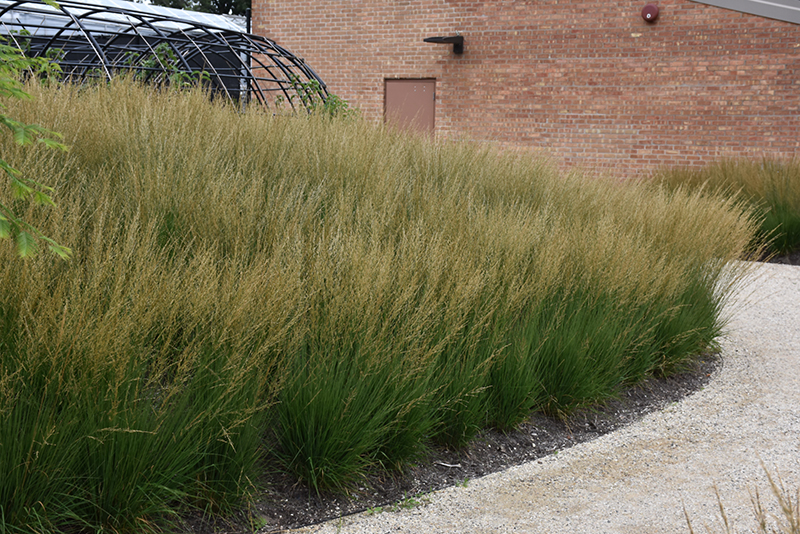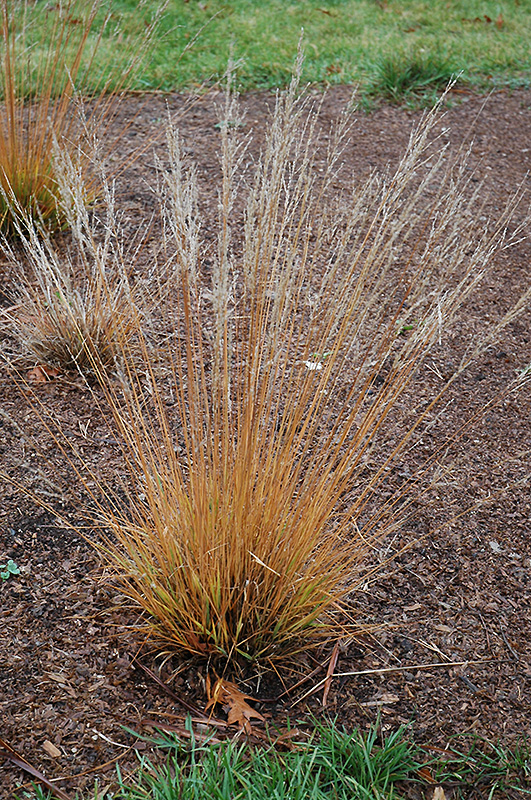Plant Height: 18 inches
Flower Height: 3 feet
Spread: 32 inches
Sunlight:
![]()
![]()
Hardiness Zone: 3a
Ornamental Features
Moorflame Moor Grass is primarily grown for its highly ornamental fruit. The coppery-bronze seed heads are carried on showy plumes displayed in abundance from early to late fall. It features dainty spikes of tan flowers rising above the foliage from mid to late summer. Its grassy leaves emerge chartreuse in spring, turning green in color. As an added bonus, the foliage turns a gorgeous coppery-bronze in the fall.
Landscape Attributes
Moorflame Moor Grass is an open herbaceous perennial grass with a mounded form. It brings an extremely fine and delicate texture to the garden composition and should be used to full effect.
This is a relatively low maintenance plant, and is best cut back to the ground in late winter before active growth resumes. It has no significant negative characteristics.
Moorflame Moor Grass is recommended for the following landscape applications;
- Mass Planting
- Border Edging
- General Garden Use
Planting & Growing
Moorflame Moor Grass will grow to be about 18 inches tall at maturity extending to 3 feet tall with the flowers, with a spread of 32 inches. Its foliage tends to remain dense right to the ground, not requiring facer plants in front. It grows at a slow rate, and under ideal conditions can be expected to live for approximately 15 years. As an herbaceous perennial, this plant will usually die back to the crown each winter, and will regrow from the base each spring. Be careful not to disturb the crown in late winter when it may not be readily seen!
This plant does best in full sun to partial shade. It prefers to grow in average to moist conditions, and shouldn't be allowed to dry out. It is not particular as to soil type or pH. It is somewhat tolerant of urban pollution. This is a selected variety of a species not originally from North America. It can be propagated by division; however, as a cultivated variety, be aware that it may be subject to certain restrictions or prohibitions on propagation.
A NetPS Plant Finder tool

